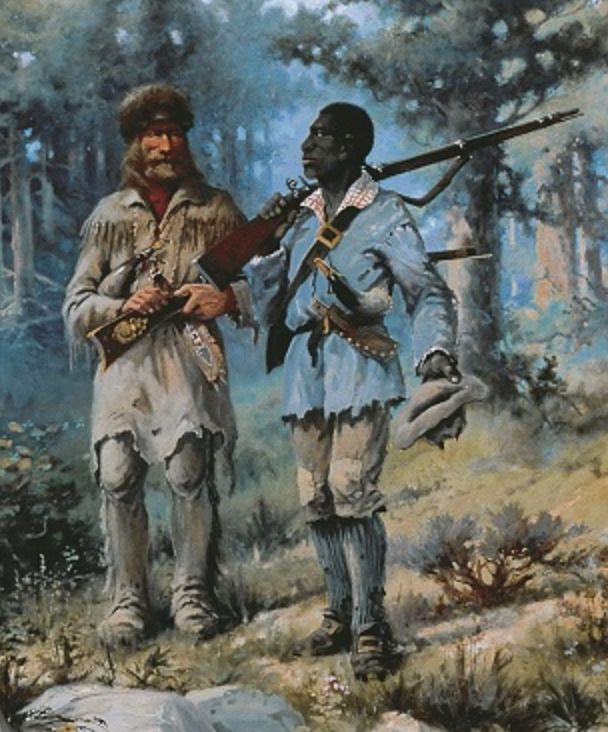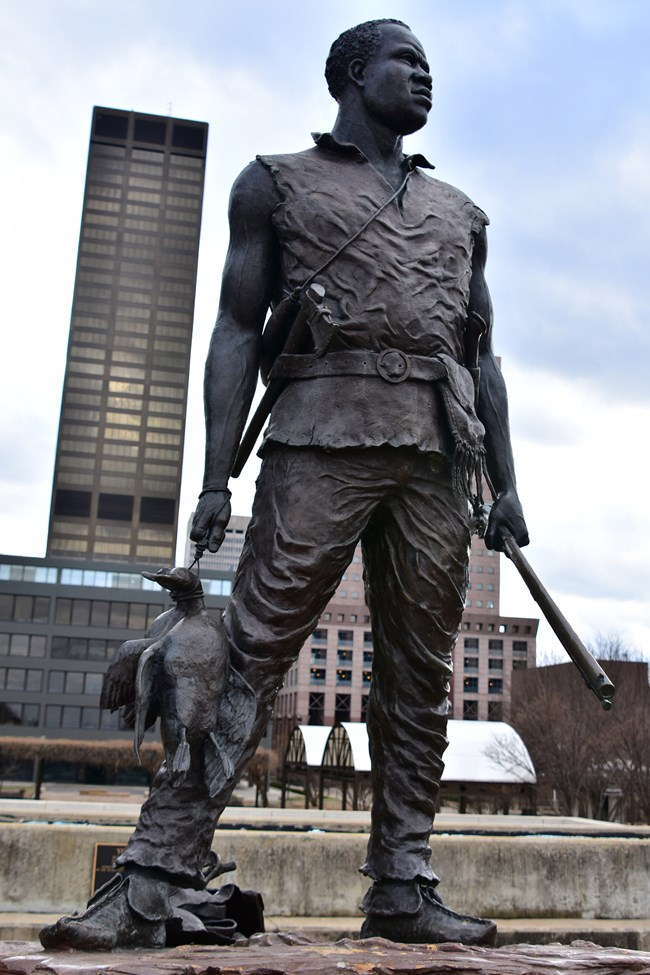Clark brought his slave on the journey
The Corps of Discovery had more than two dozen officers and enlisted personnel in addition to York, Clark's slave. Many of the frontier tribes, many of whom had never seen a person with dark skin, loved the towering manservant. The Arikara people of North Dakota even called York "Big Medicine" and believed he possessed supernatural abilities. York completed the full trip from St. Louis to the Pacific and returned despite not being an official member of the Corps of Discovery. Because of his expertise as a hunter, York came to be regarded as an important member of the expedition.
The laws of the United States granted some groups of people specific privileges while denying those same rights to others. However, as soon as the Lewis and Clark expedition departed from US-controlled territory, they were free to act however they chose. They consequently determined that each corps member would have an equal voice in all activities and decisions. York and the Shoshone interpreter Sacagawea were both permitted to vote when the explorers later decided where to set up their winter camp in 1805.
No one was restricted by their origin, status, or ethnicity, which would not have been feasible under American law, and the corps was controlled by kindness and respect. A black man and a woman may have received the vote for the first time in American history as a result of this straightforward show of hands, according to historian Stephen E. Ambrose.











